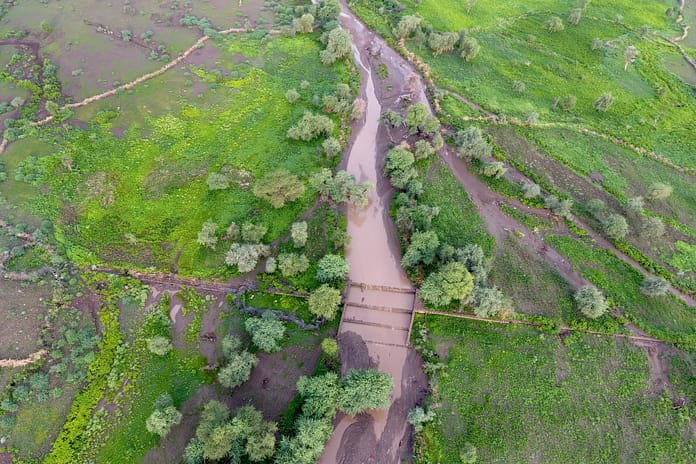Water, Climate Change & Resilience
Climate-induced changes in water resource systems impact economies, food systems, cities, energy, health, ecosystems, and the security of communities. Smallholder farmers and those disconnected from water infrastructure are particularly at risk. Shifting water availability requires solutions and services that harness advances in technology, policies and finance. To support developments in planning and investment, digital modeling is required on future scenarios of water availability and allocation. Of particular importance are advances in policies and technologies for disaster preparedness and response, climate smart strategies for water storage and the development of financial remediation schemes such as insurance.
Our approach
IWM’s approach to adaptation planning, whether for national, river basin or city level, is based on thinking that accommodates growing uncertainties within and between sectors. This means knowledge development that brings technical solutions linked with political and economic incentives that are developed within social and environmental contexts. Through digital modeling of future likely conditions, solutions may be designed to help manage the trade-offs of when, where, who and how water is allocated.
IWMI also advances the monitoring, forecasting, and risk and impact management of dynamically changing water shocks and stresses: floods, drought, extreme precipitation, and changing seasonality. The goal is, through IWMI’s knowledge and experience, to equip people and societies with the means to make the robust and flexible adjustments across systems, sectors and scales that are needed to withstand, recover from, and anticipate the impacts of climate change. Water management provides these vital levers and tools for resilience. Enhanced water management can thus be an enabler of both adaptation and more sustainable, water-conscious development across sectors and communities.
Our research on Water, Climate Change and Resilience
- Integrates modeling, monitoring and scenario planning for surface water and groundwater to help governments and partners plan and operationalize climate change adaptation.
- Further develops and deploys flood and drought monitoring and forecasting technologies for improving disaster preparedness.
- Uses river basin modeling and field assessment tools to analyze the hydrological impacts of adaptation and mitigation solutions such as nature-based solutions or new energy technologies.
- Empowers effective water governance and policy developments for climate change adaptation and mitigation.
- Strengthens gender-responsive implementation of climate-smart agriculture.
- Improves and scales up the application of financial risk transfer products for smallholder and estate farming.
- Integrates data and analytical tools, research and knowledge on institutions, equality and inclusion, and facilitates capacity development and dialogue in programs for building river basin resilience.
- Enhances knowledge of how water relates to social, economic and environmental drivers of migration, and promotes the use of this evidence in policies on migration.
Contact
Latest publications on this topic

International Journal of Applied Earth Observation and Geoinformation, 2025
More... [DOI] | Fulltext (4.83 MB)

Climate Risk Management, 2025
More... [DOI] | Fulltext (1.16 MB)








